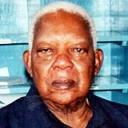Two of Tanzania’s most distinguished chiefs in the period before independence have passed away.
The country’s first Justice Minister after independence, Chief Abdallah Said Fundikira, died of heart complications in Tabora in mid August. The late Chief joined Makerere University College in Uganda from 1940 to 1946 and obtained a qualification in Agriculture. In 1957, he was ordained as Chief of the Wanyamwezi in the Nyanyembe chiefdom. He lost his title when founding President Nyerere scrapped all chiefdoms after independence.
He continued running private business until 1990, when he spearheaded the debate on multi-partyism in Tanzania in collaboration with other politicians such as the late Kassanga Tumbo, Prince Bagenda, Mabere Marando and Ndimara Tegambwage. Fundikira played a pivotal role in organising the opposition by chairing the first interim structure of an umbrella body under the name ‘National Committee for Constitutional Reform’ which became the NCCR political party.
He later formed his own party, the Union for Multiparty Democracy (UMD) but in 1999 he shifted camp to the ruling party, Chama Cha Mapinduzi (CCM). After the 2000 general elections, President Mkapa appointed him a nominated MP until 2005 when he was nominated as a Member of Parliament.
Chief David Kidaha Makwaia (84), who died on March 31, was a much respected and prominent tribal leader in the years before independence. He succeeded his father as Usiha Chief and later became Paramount Chief of the 50 autonomous institutions which joined together to form the Sukuma Federation in the Lake region. He cooperated with the then Governor of Tanganyika in moves being made towards independence and was the first African to be appointed to Tanganyika’s Legislative Council.
He was born into a Muslim family but later converted to Catholicism. As independence approached he facilitated the political rise of his old college friend Julius Nyerere but Mwalimu, as soon as he took over power, abolished the role of all chiefs and banished Chief Kidhaha temporarily to Tunduru district in the southern province. This experience is said to have alienated him from politics and, from then on, he concentrated on private business. He was involved in market research, was the Public Relations Officer of the East African Railways and Harbours and later operated a private insurance company. At the time of his death he had resumed the leadership of the Sukuma community and was active in preserving their traditional cultural practices. He was buried in Shinyanga at the site of the State House he occupied in the heyday of his chiefdom.

 Chief Abdallah Said Fundikira
Chief Abdallah Said Fundikira